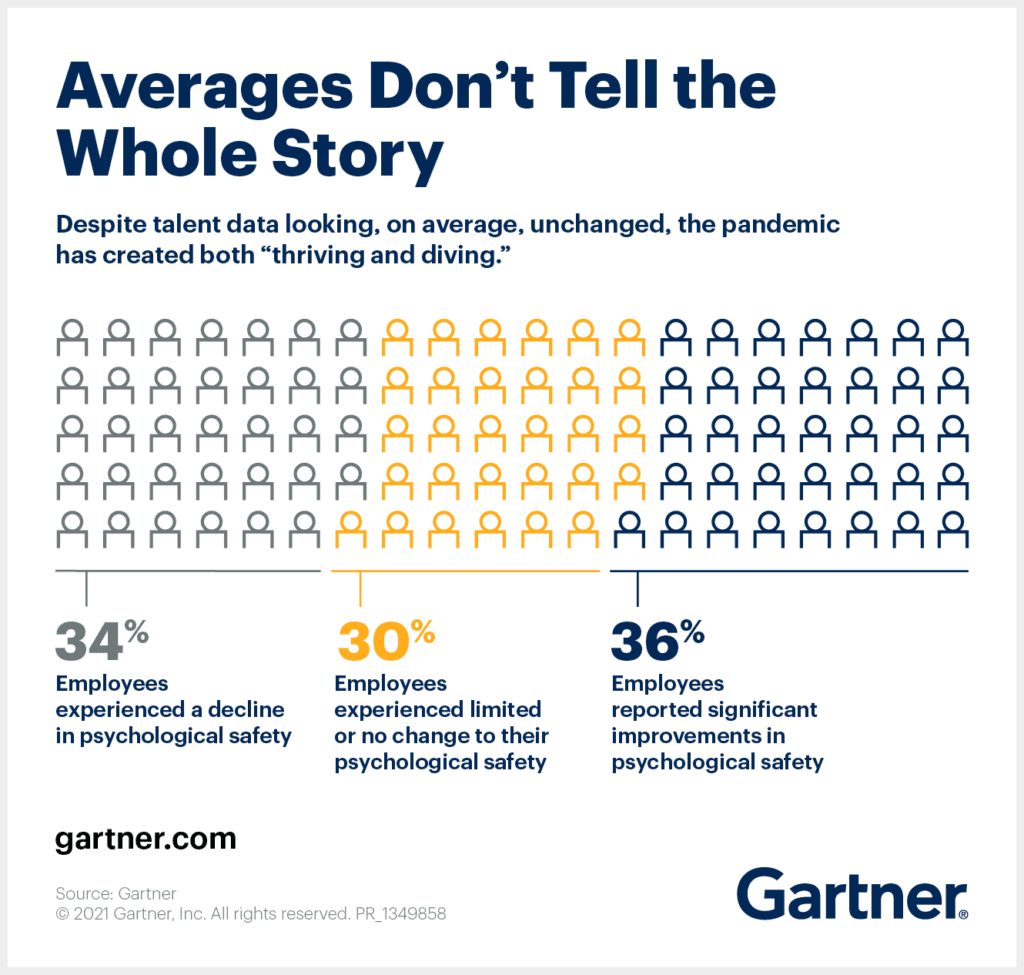While it may sound easy, building a resilient organization and maintaining it is rather challenging. The pandemic brought several challenges that were previously non-existent and unthinkable. While telecommuting and remote working options existed, it was long a wish-list item for many employers—not something to do now. Sudden digital transformation became imperative in 2020, which eventually led to a drastic change in workforce resilience. In short, COVID-19 changed everything. So how should employers successfully maintain workforce resilience amid the COVID-19 pandemic?

Behavioral Health Impacts on Your Workforce:
When COVID-19 hit, most organizations were forced to adapt to a remote workflow process and abandon their offices. While working from home comes with its own set of pros, it has some unexpected behavioral health impacts. Here is an overview.
Burnout:
Due to a hybrid or remote workflow process, most employees reported experiencing burnout. Managing both work and household while being at home is challenging for many. On top of that, many working parents had to manage virtual learning for their kids as schools remained closed for in-person learning for a very long time. Burnout usually occurs when there is an unequal balance between job demands and family commitments. Changes in the workflow process have made this situation worst for many.
Compassion fatigue:
With a never-ending pandemic, emotional pressure due to social isolation and emotional and physical tiredness altogether lead to compassion fatigue. Such symptoms decrease people’s ability to empathize or feel compassion for others. Many psychology specialists also call it secondary traumatic stress caused by the pandemic.
Negatively Impacted Resilience:

A talent data analysis (refer to the above image) published by Gartner reveals that 34% of employees experienced a decline in psychological safety due to this pandemic and its overall impacts. Strong feelings of fear, anger, and frustration due to the pandemic have impacted our resilience. Due to the ever-changing scenario of the coronavirus, people have hard times adapting well during trauma, social tragedy, and global health threats due to COVID-19. Such stressors lead to changing behaviors, thoughts, and actions.
Maintaining Workforce Resilience Amid the COVID-19 Pandemic
What’s the solution?
Executives and leaders introduce workforce agility and flexibility to build workforce resiliency. In other words, when your employees adapt to new and changing circumstances, they become more resilient against disruption with minimal negative impacts. To build a resilient workforce, employers need to support their employees in every way to keep them flexible, healthy, and productive.
Here are some suggestions for employers to build a resilient workforce amid this pandemic.
- Allow Flexibility:
Flexible work schedules give your employees an improved ability to juggle work and family demands. The pandemic has already impacted our everyday lives and social interactions. Your employees can easily handle any pandemic triggered disruption or similar while fulfilling their work commitments with a flexible work schedule. Interestingly, a published article states that workers tend to work more hours when granted more schedule autonomy.
- Communicate More:
Since many companies still don’t plan to initiate a full-fledged back-to-office plan, remote working will be prevalent unless the pandemic officially ends. Managers and supervisors may want to consider introducing more team meetings through video conferencing calls. Active video communication helps your employees feel more connected and engaged. Encourage your employees to participate in team calls. Work with your team to develop communication and work plans to set clear expectations about productivity given the problems caused by the pandemic.
- Empathize:
To maximize your workforce resiliency, try to empathize with them. Many are dealing with personal loss and direct or secondary impacts during this uncertain time due to such unforeseen events. Encourage and support work-life balance and limit their work hours as required.
- Benefits:
As the pandemic hit, businesses of all shapes and sizes were negatively impacted. Due to the sudden market disruption, many employees experienced financial deficits and job loss in the family. Support your employees during such an unprecedented time by offering short-term support programs. Employers may consider offering wellness and mental health counseling, healthcare incentives, including but not limited to free test kits, vaccination options, and other offerings like a stipend that can help them cover some expenses.
- Get help:
Not only has the pandemic heavily disrupted the employees and workplace, but also it has impacted leaders. It can sometimes be overwhelming for employers. In order to manage everything smoothly with minimal disruption, it is highly recommended to partner with expert third-party service providers to get help. With expert help, employers can quickly develop an organizational level resilience favoring both employees and managers. Prioritizing workforce and organizational stability will play a pivotal role in creating a healthy, happy, and productive workforce and a better corporate culture.
Watch our experts discussing workplace anxiety and how employers can support their employees.

With a career focused on digital marketing, Chitra is a specialized SEO-Content marketer. After moving from biotechnology to business operations and marketing, Chitra started her digital marketing career as a freelance content developer and technical writer. With Axiom, as a content marketing & SEO specialist, she is passionate about creating informative marketing copies for optimum search engine performance.
Find out more about our Tempo Live Behavioral Health and Injury Case Management services.










